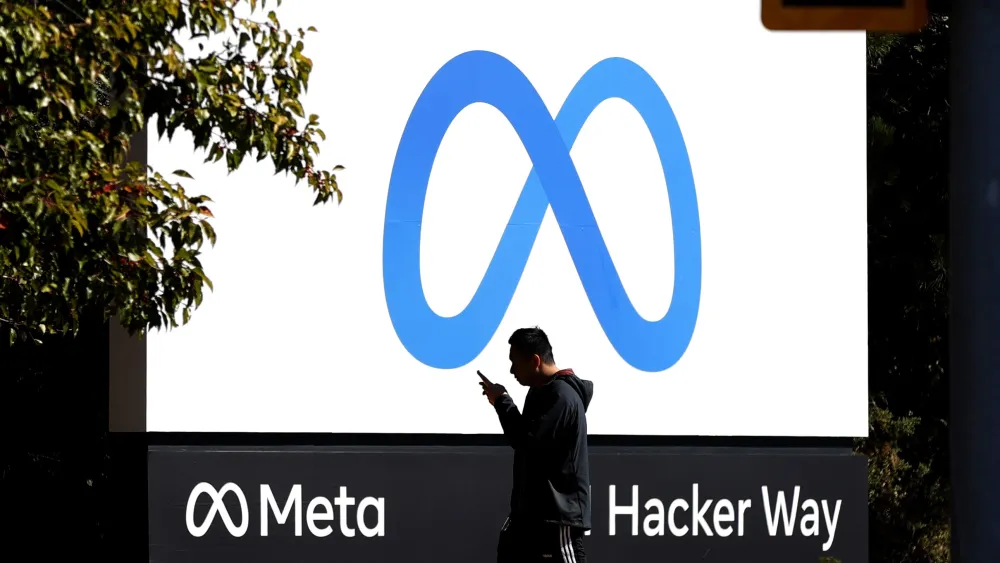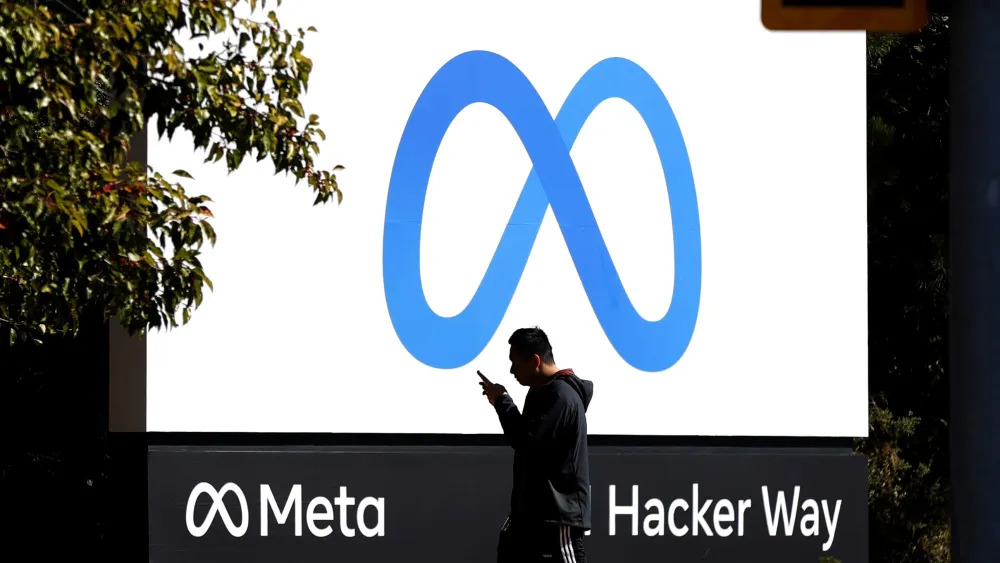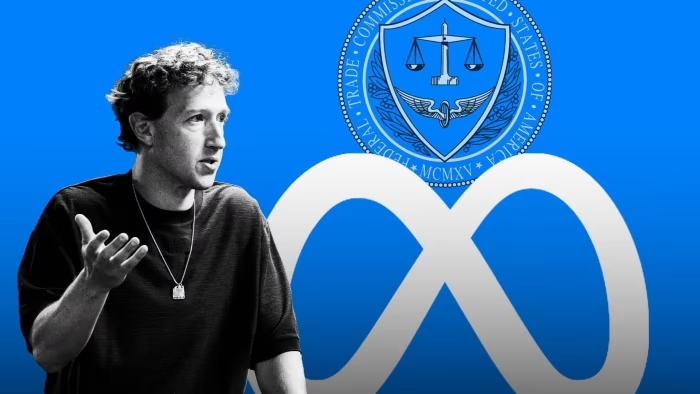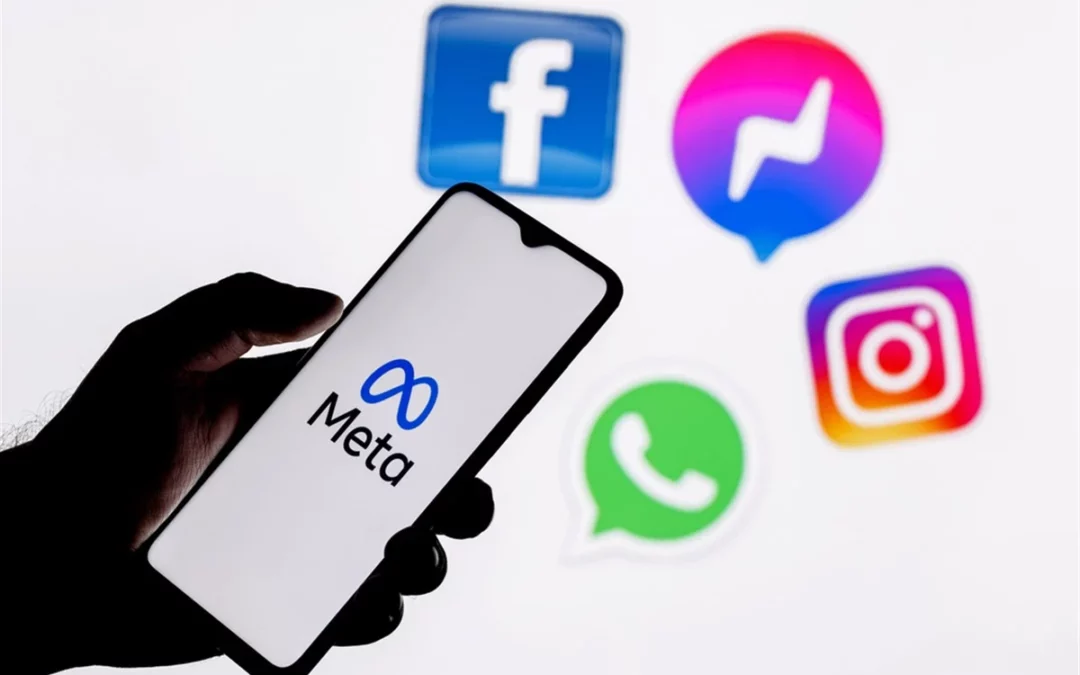The antitrust trial between Meta and the U.S. Federal Trade Commission is scheduled to begin on April 14.
The complaint revolves around claims that the digital giant unlawfully suppressed competition by purchasing early-stage businesses like WhatsApp and Instagram.
In its 21-year history, it is the most significant challenge to Meta’s approach to dealing with competition. If the FTC prevails in the case, Meta could have to dismantle its $1.3 trillion advertising business and possibly split off WhatsApp and Instagram.
READ MORE: X Will Assist Meta’s Community Notes After Fact-Checkers Are Removed
In recent weeks, Mark Zuckerberg, the CEO of Meta, has been reportedly courting President Trump in an attempt to tip the odds in his favor and possibly come to a settlement that would spare his business from a trial entirely. According to a Wall Street Journal report, the 40-year-old CEO made his most recent of a few trips to the White House last Wednesday. It’s unclear if the campaign will work out well for Meta.
The most crucial information regarding Meta’s historic antitrust trial this month is provided here.

By attempting to litigate Meta’s prior business decisions, the case adopts a retroactive method to evaluating potentially anti-competitive behaviors in the market. It mostly focuses on whether the acquisitions of Instagram in 2012 and WhatsApp in 2014 were calculated actions to lessen competition.
“Facebook has engaged in a systematic strategy—including its 2012 acquisition of up-and-coming rival Instagram, its 2014 acquisition of the mobile messaging app WhatsApp, and the imposition of anticompetitive conditions on software developers—to eliminate threats to its monopoly,” the FTC claimed in its initial complaint, which was filed in 2020.
READ MORE: Meta Will Invest Up To $65 Billion This Year To Power AI Aspirations, Zuckerberg Claims
The complaint was filed before the business changed its name to Meta in 2021.
The FTC is stating, “This is not about you being a monopoly right now,” in reference to Meta’s earlier decisions. However, because you purchased Instagram and WhatsApp at the same time, you have stifled opportunity, and as a result, you may eventually become a monopoly,” said Bruce Weinberg, PhD, who heads the marketing department at the University of Massachusetts, Amherst.

But because it focuses on a different era—and ultimately, a different market than today’s—it’s a potentially precarious stance for the agency to adopt, according to Brian Albrecht, an antitrust specialist and chief economist at the International Center for Law and Economics, a nonprofit policy research group.
According to Albrecht, “the government will want us to imagine—if only subtly—that this is 2018 and Facebook and Instagram are the two major players.” “But they are no longer.”
READ MORE: Oakley Smart Glasses Will Be Released This Year, And Meta Spectacles With A Display Will Cost $1,000
Albrecht added that the FTC will have a greater burden of proof than in some other antitrust investigations because both deals were done a long time ago. In the end, he believes that since “there are more competitors and options than ever before,” the FTC will have a difficult time persuading a judge that the sale of Instagram and perhaps WhatsApp will significantly affect market competition going forward.
Meta might have to spin out WhatsApp or Instagram if the FTC wins. In place of a more extensive split, less severe possible sanctions would involve the sale of particular assets or adjustments to Meta’s data policies.

The stakes are billions of ad dollars.
Meta might lose important ad revenue and market share if the FTC is successful in its complaint. Instagram in particular plays a vital role in the company’s revenue growth; according to recent estimates from eMarketer, Instagram is predicted to generate over $32 billion in 2025, or more than half of Meta’s entire U.S. ad revenue.
In summary, Meta’s earnings would be severely damaged by a firm split.
According to Jason Kint, CEO of Digital Content Next, a trade association for digital media, “Meta is almost entirely reliant on advertising revenue, so its real concern is anything that restricts it from offering advertisers a single buying platform [that leverages] all of Meta’s data signals collected across the web and its nearly ubiquitous services.”
The ability of marketers to utilize Meta as a sort of one-stop shop for media buying across some of the most popular areas of the internet would probably be weakened if the company were to split up. Experts told ADWEEK that it would compel companies to reconsider their overall digital marketing expenditure plans.
Although improbable, a pre-trial settlement is feasible.
According to reports, Zuckerberg has made three trips to the White House since the President’s second term began in January.
The Wall Street Journal, The New York Times, and Politico have reported that the tech executive is trying to reach a settlement before the trial’s scheduled start date.
According to Matt Navarra, a social media strategist and industry analyst, “Meta’s strategies demonstrate that there is a complex dance between corporate power and political influence in the current tech landscape and political environment.”

Additionally, despite the fact that Trump’s right-hand man Elon Musk is everywhere and that some of the biggest names in technology, including as Google’s Sundar Pichai and Amazon billionaire Jeff Bezos, have tried to court him in the early days of his administration, the president has not been totally amenable to them. Trump’s shockingly high tariffs, which were announced last week, are predicted to substantially raise costs for hardware makers, AI developers, and companies that rely on semiconductors, as well as to disrupt global tech supply chains.
During Trump’s first presidency, the FTC filed an antitrust complaint against Meta.
Zuckerberg is now running out of time, as the trial is scheduled to begin in less than a week. According to the Wall Street Journal, White House officials are becoming more and more irritated with the company’s aggressive lobbying strategies.
According to Navarra, “a pre-trial settlement is conceivable, but complex, and doesn’t seem likely given the current dynamics.”
Jason Kint of Digital Content Next expressed this opinion when he testified earlier this month before a congressional subcommittee on antitrust remedies in the technology industry. He stated that the commissioners of the FTC “support enforcement of the antitrust laws.”

The case might establish a standard for the FTC under Trump.
The upcoming trial could be a litmus test for the FTC’s strategy under Andrew Ferguson, the newly appointed chairman by Trump after Biden-appointed Lina Khan resigned and two Democratic FTC commissioners were expelled (who are now suing Trump over their dismissals).
Trump has adopted a more assertive stance in promoting his agenda throughout government agencies, including the FTC, which has generally functioned independently like many others.
Additionally, the FTC under Trump has already shown that it is at least somewhat willing to comply with his demands. In this instance, Ferguson has indicated that he will comply if necessary; during a speech in Washington, D.C., last Wednesday, he stated that he would “obey lawful orders” from the president if instructed to dismiss the FTC’s lawsuit against Meta.
“Meta isn’t the only thing at stake,” Navarra stated. The goal is to establish the limits of presidential authority over these bodies. In addition to perhaps bringing down Meta’s empire, this case [may] establish a precedent for how antitrust laws would be applied to tech companies in the current political environment.
Step into the ultimate entertainment experience with Radiant TV! Movies, TV series, exclusive interviews, live events, music, and more—stream anytime, anywhere. Download now on various devices including iPhone, Android, smart TVs, Apple TV, Fire Stick, and more!


